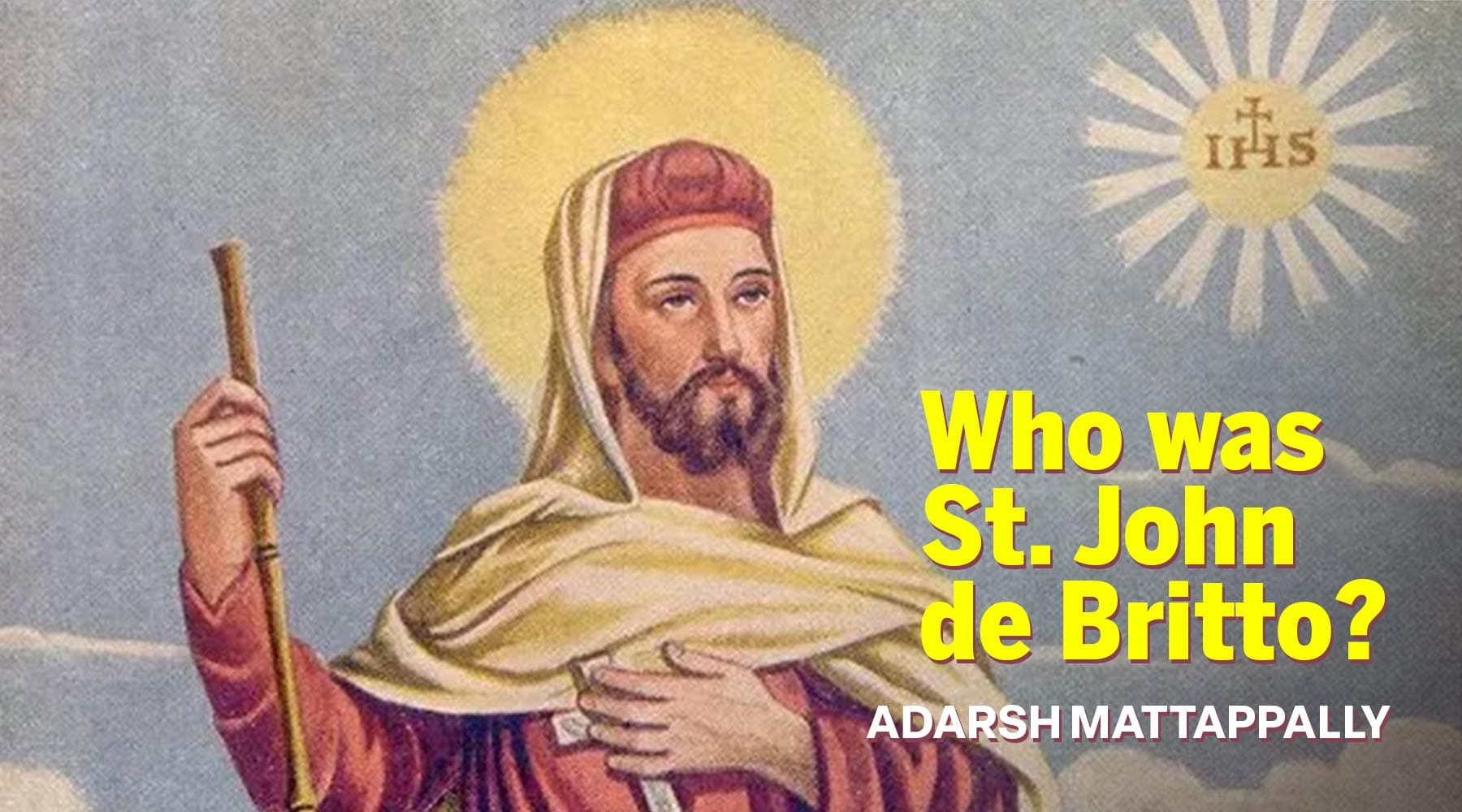St. John de Brito was born in an aristocratic family in Lisbon, Portugal. He lived a luxurious life and spent much of his time as a member of the Royal Court, in the company of the future King, Peter II. However, when he was young, he was struck with an illness that caused him great suffering. John’s mother prayed intensely, and vowed that he would put on a Jesuit cassock for a year, if he was healed. John recovered miraculously! His family members and friends witnessed him walking around with the Jesuit cassock on. Little did they know that this would be a manifestation of his future as a Jesuit missionary in India!
On December 17, 1662, against the wishes of his family and the king himself, John joined the Jesuit novitiate in Lisbon at the age of 15. He requested a missionary pilgrimage to the East after being ordained in 1673. He reached Goa in September of that year, where he studied theology and pursued to seek the glory of martyrdom. While in India, John extensively studied the Indian Caste system, and noticed that Christians generally belonged to the lowest and most despised caste. For this reason, he went on spreading the Good News in areas of India, mainly, present day State of Tamil Nadu where he took the name ‘Arul Anandar.’
In 1684, he was imprisoned by the ruler of the Maravar country, and released later in 1687 to be sent back to Lisbon. While in India, constant fasting and vegetarian diet had deteriorated his health. Although King Peter II of Portugal offered him a secure and comfortable job teaching his children, John insisted on finishing his mission in India, no matter how severe the persecutions he would have to face.
Because of this, he returned to Tamil Nadu and lived like a Tamil Thuravi/Sanyaasi, remaining strictly vegan for the rest of his life. In order to gain more converts, he broke down Christianity into ‘concepts’ that were easily understood by the people of the area. He also worked to build a church free of European cultural elements. However, the conversion of a renowned prince in that area led to the persecution of many Christians by the King of Ramanathapuram. John and other catechists were taken to a coast near Ramnad and executed on February 4, 1693.
John was beatified by Pope Pius IX on August 21, 1853. He was canonized by Pope Pius XII on June 22, 1947. His feast day is February 4. St. John Brito’s contribution to the spread of Christianity in India is unforgettable, and his influence is still seen in much of the Jesuit run schools and colleges around the world.





